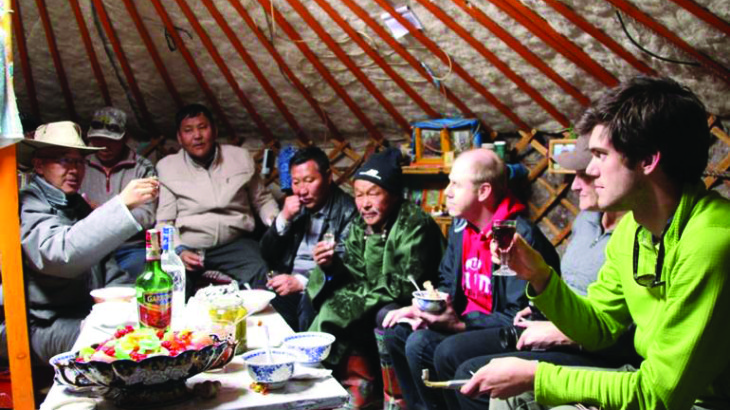In early 2012, Christopher Pagels, a bioengineering student, was looking for an extracurricular activity to supplement his studies and a mentor to help guide his projects and research. He found out about the bioWorld program after reaching out to Bob Hitchcock, a professor in bioengineering. The rest is history.
During the summer of 2012, Pagels traveled to Mongolia to research the state-run health care system. He had heard of problems less developed countries have during medical treatment and surgery, such as light fixtures falling on people during open cavity surgery and power going out in the middle of procedures.
“What better way to find out what people need than to go there and see for yourself?” he says.
He says the people of Mongolia were able to do extraordinary things with limited resources. He focused on developing a portable light source that would be inexpensive and use mature technology available anywhere. The light he developed with other students used 9-volt car batteries and LED light bulbs. The battery charged while the power was on and when the power failed, the light was still operational.
“It was the most engaged learning experience I have had on campus and subsequently the most rewarding,” he says.



